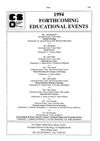 1 citations,
January 2018 in “Springer eBooks”
1 citations,
January 2018 in “Springer eBooks” The document concludes that scalp cooling and treatments like minoxidil can help manage hair loss from cancer therapy.
 438 citations,
October 2010 in “Oncogene”
438 citations,
October 2010 in “Oncogene” Keratins help protect cells, aid in cancer diagnosis, and influence cancer behavior and treatment.
 29 citations,
February 2016 in “Scandinavian journal of urology”
29 citations,
February 2016 in “Scandinavian journal of urology” Late puberty may slightly lower prostate cancer risk, baldness is not linked to overall risk but less so with aggressive types, ibuprofen use may increase risk, and vitamins show no effect on risk.
 2 citations,
October 2021 in “Clinical Epidemiology and Global Health”
2 citations,
October 2021 in “Clinical Epidemiology and Global Health” High uric acid levels are more common in PCOS patients, especially those with androgenic PCOS, and are linked with increased cardiovascular risk and other metabolic issues.
 50 citations,
June 1999 in “Annals of Oncology”
50 citations,
June 1999 in “Annals of Oncology” Giving docetaxel weekly at 40 mg/m² is manageable and has low toxicity for cancer patients.
 November 2023 in “Advanced Science”
November 2023 in “Advanced Science” A specific hair protein variant increases the spread of breast cancer and is linked to worse survival rates.
 25 citations,
February 2017 in “Anticancer Research/Anticancer research”
25 citations,
February 2017 in “Anticancer Research/Anticancer research” Ozone therapy might improve cancer treatment and reduce its side effects.
 August 2024 in “Drug Design Development and Therapy”
August 2024 in “Drug Design Development and Therapy” Decursin shows promise for treating cancer, neuroprotection, inflammation, and hair loss.
 90 citations,
December 2007 in “Current Oncology”
90 citations,
December 2007 in “Current Oncology” Non-hormonal treatments should be used first for sexual dysfunction in postmenopausal breast cancer patients on aromatase inhibitors, with hormones as a second option.
 13 citations,
May 2018 in “Urologic Oncology: Seminars and Original Investigations”
13 citations,
May 2018 in “Urologic Oncology: Seminars and Original Investigations” Finasteride does not prevent bladder cancer.
105 citations,
April 2014 in “Trends in Pharmacological Sciences” Targeting the Smoothened receptor shows promise for treating certain cancers.

The reviewers suggest clarifying the abstract, adding background on inflammation's effect on stem cells and cancer, discussing immune cells' role in tumors, and considering inflammation's potential to reduce cancer growth.
 60 citations,
June 1997 in “Drugs & Aging”
60 citations,
June 1997 in “Drugs & Aging” Mitoxantrone with a corticosteroid helps manage symptoms for some advanced prostate cancer patients but doesn't extend life.
 September 2023 in “Curēus”
September 2023 in “Curēus” Reproductive hormones play a crucial role in breast cancer development and treatment challenges.

The revised manuscript on how inflammation affects cancer stem cells was accepted after addressing issues with clarity and detail.
 24 citations,
July 2018 in “Stem cells”
24 citations,
July 2018 in “Stem cells” Runx1 controls fat-related genes important for normal and cancer cell growth, affecting skin and hair cell behavior.

The revised study on how inflammation affects cancer stem cells was accepted after improving clarity and structure.
 1 citations,
April 2021 in “Plant Archives/Plant archives”
1 citations,
April 2021 in “Plant Archives/Plant archives” Onions may help reduce cancer risk and obesity-related issues.
5 citations,
May 2022 in “Clinical & Experimental Metastasis” Minoxidil and ranolazine together can reduce the spread of certain breast cancer cells.
 January 2023 in “International Journal of Clinical and Medical Education Research”
January 2023 in “International Journal of Clinical and Medical Education Research” Correct testosterone levels for age to treat prostate cancer, using low dose treatments as necessary.
 48 citations,
September 2013 in “Oncologist”
48 citations,
September 2013 in “Oncologist” Endocrine therapies for cancer significantly increase the risk of hair loss.
 7 citations,
January 2023 in “Journal of Hematology & Oncology”
7 citations,
January 2023 in “Journal of Hematology & Oncology” Using protein degradation to fight cancer drug resistance shows promise but needs more precise targeting and fewer side effects.
 16 citations,
March 2018 in “Seminars in Oncology”
16 citations,
March 2018 in “Seminars in Oncology” The document concludes that pregnancy and cancer share immune evasion tactics, but more research is needed before using checkpoint blockade immunotherapy in pregnant cancer patients to avoid harm to the placenta.

The reviewers suggest major revisions for clarity and inclusion of recent findings on inflammation's role in cancer.
 3 citations,
November 2022 in “Advances in Clinical and Experimental Medicine”
3 citations,
November 2022 in “Advances in Clinical and Experimental Medicine” Electric pulse treatments for breast cancer show promise in being safer and more effective, with fewer side effects.
 403 citations,
December 2018 in “Cell stem cell”
403 citations,
December 2018 in “Cell stem cell” Understanding phenotypic plasticity is crucial for developing effective cancer therapies.

Nanoformulations improve luteolin's effectiveness as a cancer treatment.
 January 1994 in “European Journal of Cancer”
January 1994 in “European Journal of Cancer” The European School of Oncology organized various educational events in 1994, highlighting important cancer research findings.
505 citations,
December 2011 in “Journal of clinical oncology” MK-2206 was safe and effectively blocked AKT signaling in cancer patients, warranting more trials.
 10 citations,
January 1994 in “Advances in pharmacology”
10 citations,
January 1994 in “Advances in pharmacology” New drugs targeting DNA enzymes show promise for cancer treatment but have side effects like immune system suppression and hair loss.



























